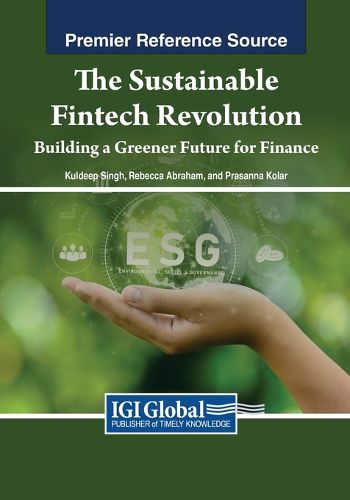Readings Newsletter
Become a Readings Member to make your shopping experience even easier.
Sign in or sign up for free!
You’re not far away from qualifying for FREE standard shipping within Australia
You’ve qualified for FREE standard shipping within Australia
The cart is loading…






This title is printed to order. This book may have been self-published. If so, we cannot guarantee the quality of the content. In the main most books will have gone through the editing process however some may not. We therefore suggest that you be aware of this before ordering this book. If in doubt check either the author or publisher’s details as we are unable to accept any returns unless they are faulty. Please contact us if you have any questions.
The fintech industry has transformed the way individuals handle their finances, conduct transactions, and access financial services over the past decade. With increased efficiency and cost-effectiveness, fintech has emerged as one of the most profitable industries globally. However, the growth of fintech also presents an opportunity to promote sustainability and social responsibility in the financial sector. Fintech can contribute to financial inclusion, reduce economic disparities, and advance sustainable development goals through the integration of technology. The Sustainable Fintech Revolution: Building a Greener Future for Finance explores how fintech can be used to promote sustainability in the financial industry. This book provides a comprehensive overview of the fintech ecosystem and its potential for advancing sustainability goals, including case studies of companies that have integrated sustainability into their business models. It also offers insights and recommendations for policymakers, regulators, financial institutions, and fintech companies on how they can promote sustainability in the financial industry. This book is ideal for academics and researchers in finance, technology, sustainability, and development studies, as well as practitioners in the fintech industry, policymakers and regulators, and non-governmental organizations (NGOs) working on sustainable finance and development issues.
$9.00 standard shipping within Australia
FREE standard shipping within Australia for orders over $100.00
Express & International shipping calculated at checkout
This title is printed to order. This book may have been self-published. If so, we cannot guarantee the quality of the content. In the main most books will have gone through the editing process however some may not. We therefore suggest that you be aware of this before ordering this book. If in doubt check either the author or publisher’s details as we are unable to accept any returns unless they are faulty. Please contact us if you have any questions.
The fintech industry has transformed the way individuals handle their finances, conduct transactions, and access financial services over the past decade. With increased efficiency and cost-effectiveness, fintech has emerged as one of the most profitable industries globally. However, the growth of fintech also presents an opportunity to promote sustainability and social responsibility in the financial sector. Fintech can contribute to financial inclusion, reduce economic disparities, and advance sustainable development goals through the integration of technology. The Sustainable Fintech Revolution: Building a Greener Future for Finance explores how fintech can be used to promote sustainability in the financial industry. This book provides a comprehensive overview of the fintech ecosystem and its potential for advancing sustainability goals, including case studies of companies that have integrated sustainability into their business models. It also offers insights and recommendations for policymakers, regulators, financial institutions, and fintech companies on how they can promote sustainability in the financial industry. This book is ideal for academics and researchers in finance, technology, sustainability, and development studies, as well as practitioners in the fintech industry, policymakers and regulators, and non-governmental organizations (NGOs) working on sustainable finance and development issues.